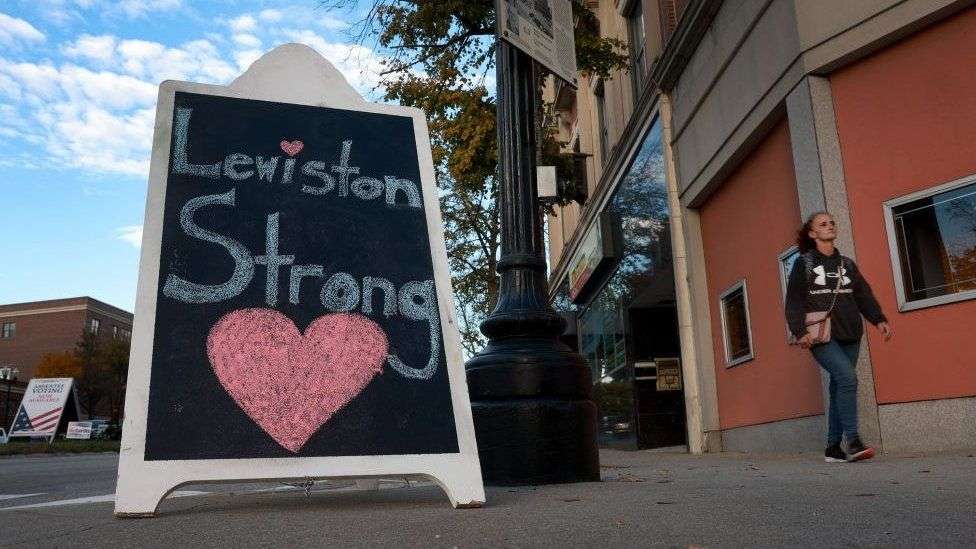The Maine gunman was deemed by the US Army to be behaving too erratically to be allowed a weapon, three months before he fatally shot 18 people.
Robert Card, an army reservist, was evaluated in July and found to be "non-deployable due to concerns over his well-being", the Army said.
He then spent 14 days in a psychiatric hospital before being released.
Card was found dead on Friday, ending a manhunt after the mass shooting at a bar and bowling alley last Wednesday.
More than a dozen people were also injured in the shooting in the city of Lewiston.
The July evaluation meant Card could not handle ammunition or "participate in live fire activity", Army spokesperson Lt Col Ruth Castro said in a statement emailed on Monday evening.
She said the Army Reserve Command had made "multiple attempts" to contact the reservist.
On Monday, a CNN report based on unnamed sources said that the army had asked local police to check on Card over concerns he would "snap and commit a mass shooting".
Sagadahoc County Sheriff Joel Merry said in a Monday evening statement that, on two occasions in September, a deputy could not find the reservist at his home in Bowdoin, prompting a state-wide alert.
He also said that his office was contacted in May by members of Card's family who were concerned over his mental health and access to weapons.
A deputy within his office then notified Card's Army Reserve training group.
There was also another incident in which Card allegedly punched his friend - a fellow soldier - during an argument and made threats against his US Army base in Saco, Maine.
The litany of missed warnings on Card have sparked a debate about Maine's "yellow flag" law, passed in 2019.
The measure requires several steps before guns can be taken by authorities from someone deemed to pose a danger to himself or others.
It is seen as a weaker version of a "red flag" law, which involves fewer procedural steps in allowing a court to order the temporary removal of a firearm from someone.
Card was turned away by a gun store in one recent instance.
Maine firearms store owner Rick LaChapelle told the New York Times and ABC News that the 40-year-old suspect had entered his shop on 5 August to pick-up a silencer he had bought online.
He had to fill out a form, which included the question: "Have you ever been committed to a mental institution?"
Card answered yes, Mr LaChapelle said.
The staff looked at the form and told Card he was not eligible to purchase the silencer because of his answers on the questionnaire.
Card was found dead from an apparently self-inflicted gunshot wound on Friday night near a river around 10 miles (16km) from Lewiston, police said.








